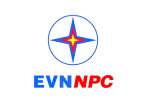








Thế mạnh của chúng tôi được xây dựng trên kinh nghiệm, kỹ năng và sự nhiệt tình của đội ngũ chuyên gia và nhà lãnh đạo cấp cao. Qua mỗi dự án chúng tôi học hỏi, trau dồi và tìm kiếm tri thức mới để vững vàng hơn, trưởng thành hơn, trở thành những chuyên gia hàng đầu.

ICI là tổ chức chứng nhận hợp pháp được chỉ định bởi Bộ Khoa học Công nghệ. Chúng tôi đã được đánh giá theo các tiêu chuẩn quốc tế công nhận và hoạt động ở mức tối đa về chất lượng dịch vụ - cung cấp sự đảm bảo chứng nhận một cách đáng tin cậy và khách quan.

ICI thực hiện quy trình hóa kế hoạch đánh giá cho từng giai đoạn, chuyên gia đánh giá, thời gian, thông tin chi tiết về chương trình đánh giá khi thực hiện đánh giá.

Toàn bộ đội ngũ nhân viên của chúng tôi thấu hiểu một điều rằng thành công của chúng tôi nằm trong những giá trị mà chúng tôi đem lại cho khách hàng. Chính vì lẽ đó chúng tôi luôn cam kết mang lại cho khách hàng những giá trị nhiều hơn sự mong đợi.
Quy trình là một trong những yếu tố tạo nên sự uy tín và chất lượng dịch vụ tại ICI, hiểu được điều này, ICI tối ưu quy trình hằng ngày để chuyên nghiệp hóa hơn trong cách làm việc.

 Tiếp nhận yêu cầu đăng ký chứng nhận
Tiếp nhận yêu cầu đăng ký chứng nhận
 Xem xét hồ sơ/phạm vi chứng nhận
Xem xét hồ sơ/phạm vi chứng nhận
 Ký kết hợp đồng đăng ký chứng nhận
Ký kết hợp đồng đăng ký chứng nhận
 Xây dựng kế hoạch đánh giá
Xây dựng kế hoạch đánh giá
 Tiến hành đánh giá hồ sơ (giai đoạn 1)
Tiến hành đánh giá hồ sơ (giai đoạn 1)
 Tiến hành đánh giá thực địa (giai đoạn 2)
Tiến hành đánh giá thực địa (giai đoạn 2)
 Thẩm xét hồ sơ đánh giá
Thẩm xét hồ sơ đánh giá
 Quyết định cấp chứng nhận
Quyết định cấp chứng nhận
 Giám sát sau chứng nhận
Giám sát sau chứng nhận